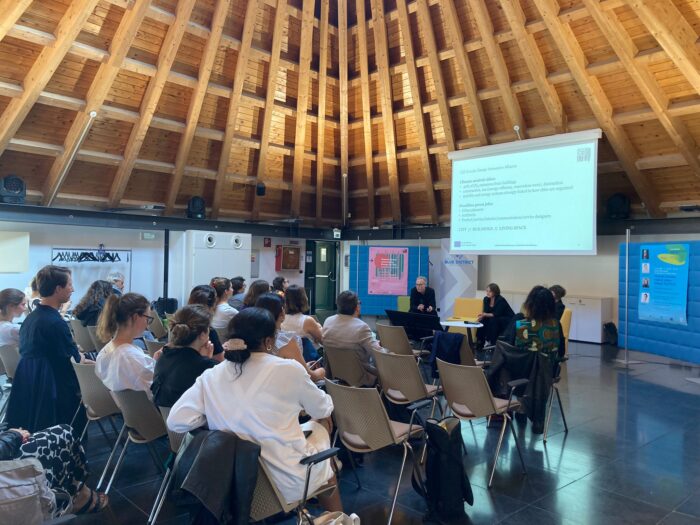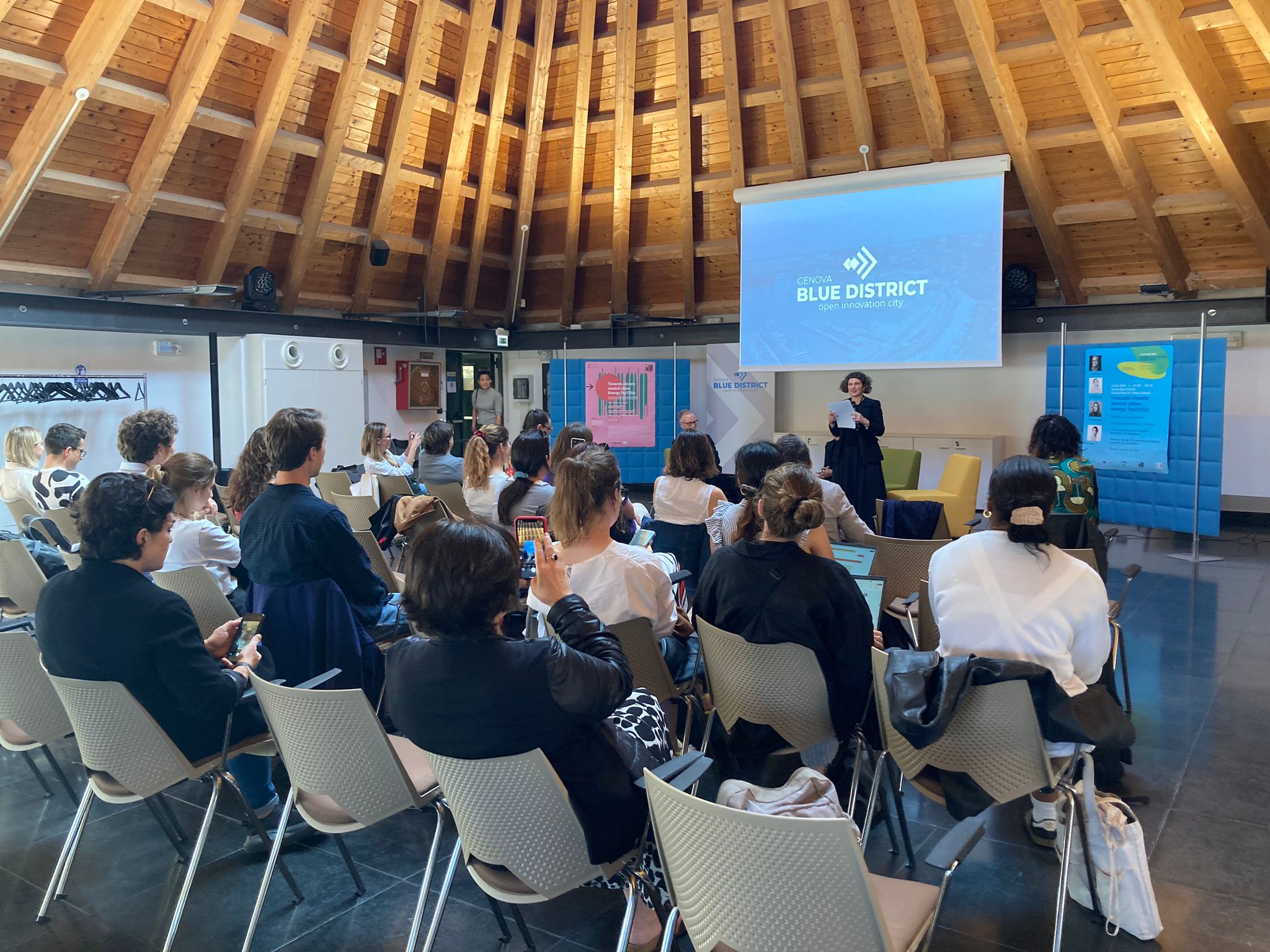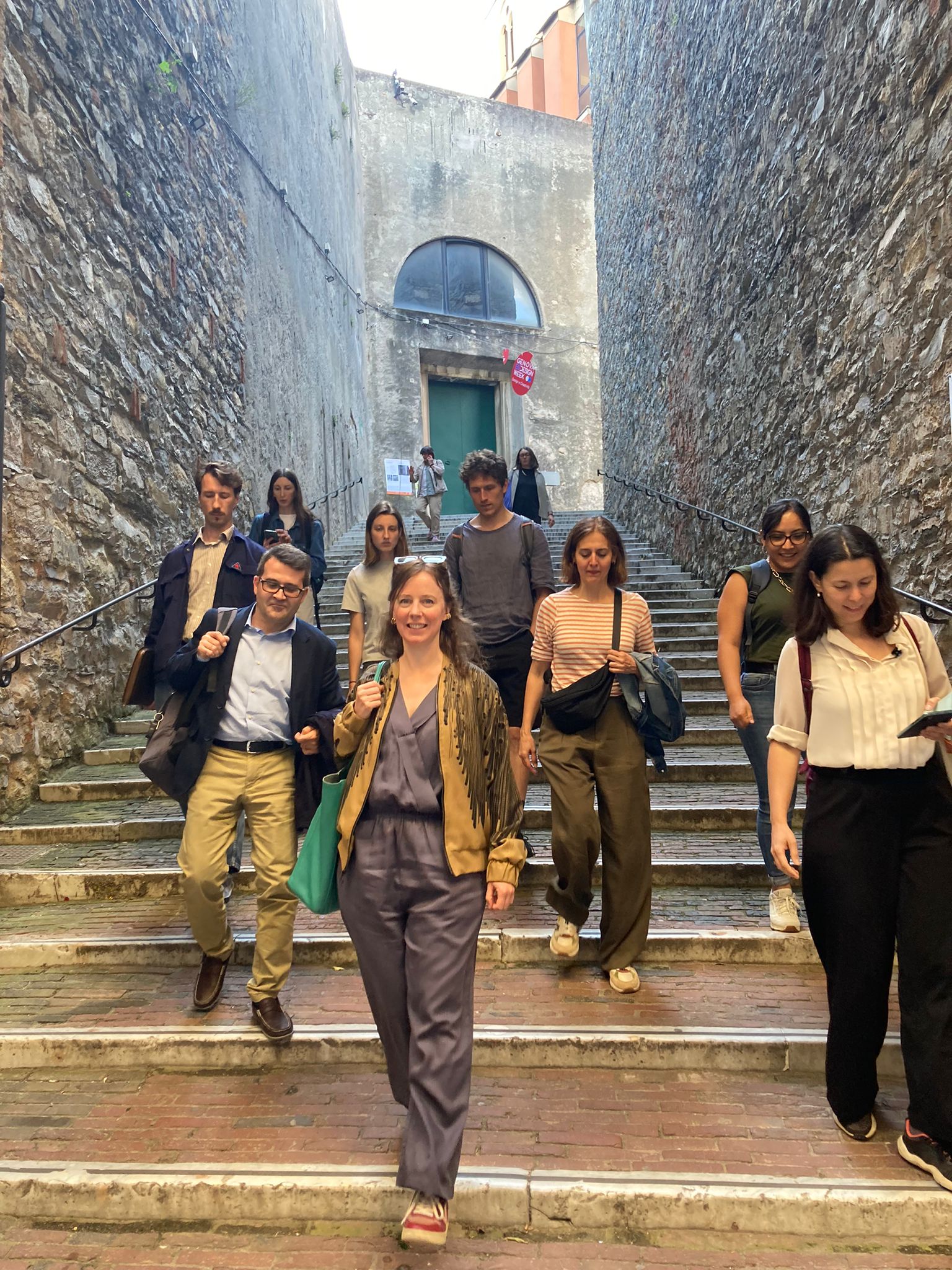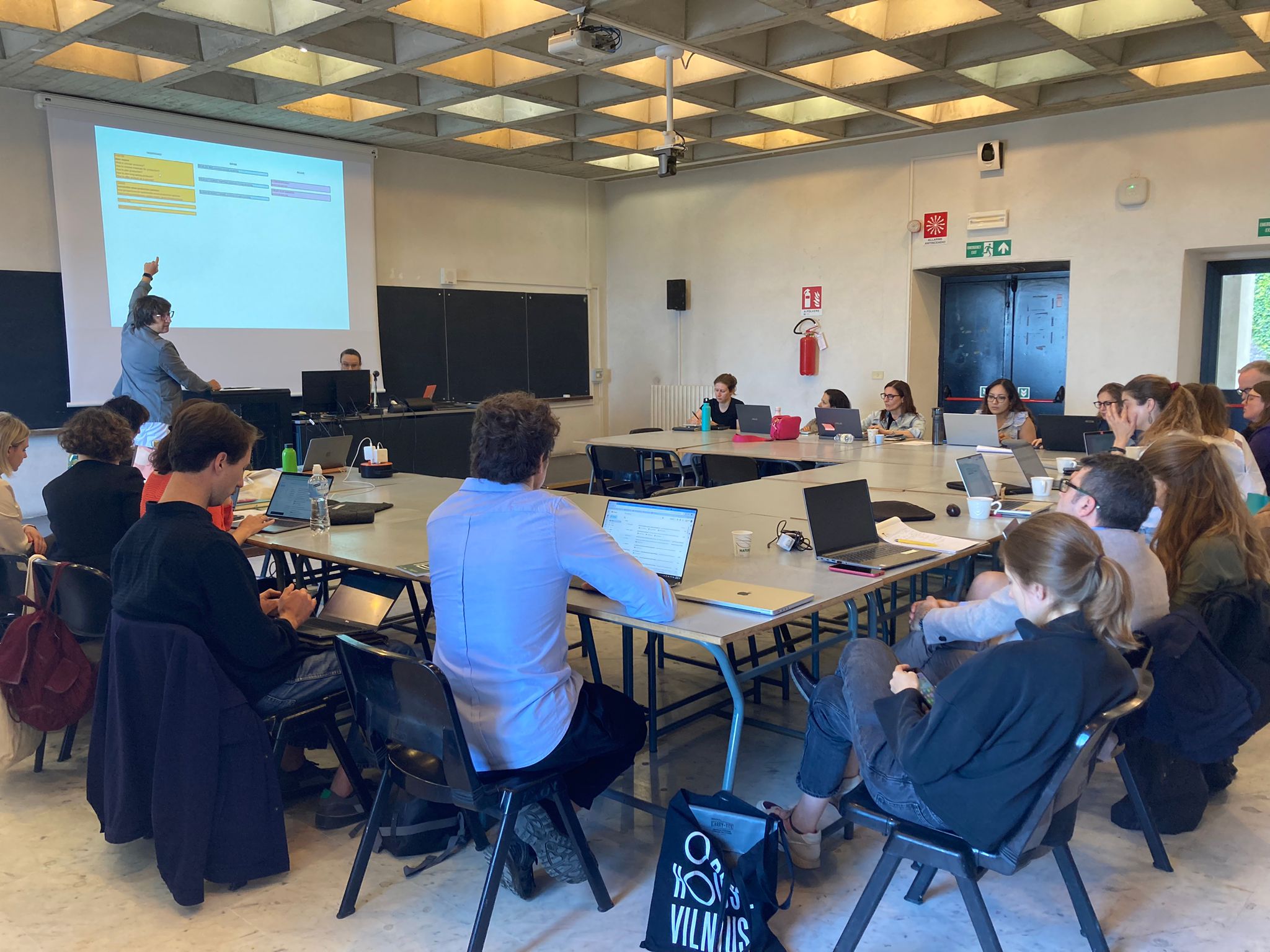At the CiD project meeting in Genoa, the structure of the project’s study programmes and accelerator was finalized

The CiD project meeting in Genoa, held June 12th-14th 2024, has been a significant gathering of partners collaborating to define guidelines for Academic, Continuous Education and Accelerator courses. It took place at the Architecture and Design Department of the University of Genoa, in a beautiful setting overlooking the roof garden of the historical university building.
During the Academic Programme Session, partners from UNIGE, LUH, and IAAC presented their academic timelines for 2025. This session emphasized the importance of defining and validating the guidelines for the CiD Course and explained the strategies for implementation. Collaborative activities focused on creating and completing the guidelines template and validating the curriculum guidelines in small groups, ensuring diverse input and adjustments from all participants.
The Tallinn Accelerator session followed, where TEI shared their vision for competition selection criteria. The group worked together to define and validate the guidelines for the CiD Accelerator Programme, sharing visions and strategies.
In the afternoon, the Continuous Education Session led by ARCES involved defining guidelines for continuous education, brainstorming, and validating curriculum guidelines in small groups. This session highlighted the importance of continuous improvement and feedback in educational programmes, also discussing in detail the most relevant topics both from a cross-disciplinary point of view and also specifically related to the target groups.
Later, the Sustainability Roadmap & Skill Tree diagram session led by ERSILIA involved mapping the skills tree for each curriculum and validating good practices across different educational programmes. This session was crucial for ensuring the sustainability and quality of the CiD project, and developing personas embracing real needs of CiD learners.
On June 13th, the focus shifted to flipped class and transversal sessions. Participants discussed the CiD ‘pill’ and ‘chapter’ format for videos, their technical features, and the organization of flipped classrooms. This session was vital for validating a list of important themes to be highlighted during the flipped classrooms and for enhancing the flipped teaching methodology and find transversal topics for future developments between programs.
The day continued with discussions on research, multiplier events, and publications led by LUH. Participants reviewed dissemination events, publication strategies, and the CiD Publication series, reinforcing the importance of sharing knowledge and findings widely.
In the afternoon, the Observatory Update & Workshop focused on curriculum feedback. Partners completed feedback templates and discussed inputs recollected by observatories,. This session also explored stakeholder involvement and resource allocation, ensuring that the academic programme benefited from expert inputs and diverse perspectives.
The day concluded with a participation in the EUSEW Event at Genoa Blue District, where partners presented various aspects related to CiD project and discussed sustainable textile innovations case-studies.
On June 14th, the CiD Steering Committee Meeting was held, followed by an Academic Launch Event and a session on Crossing Formats & CiD Resources. This final workshop involved mapping skills for each curriculum, brainstorming resource definitions, and validating CiD resources and formats. The workshop ended with a presentation of results, feedback, and adjustments, setting the stage for the next steps and deadlines.
During the workshop, the collaboration of all partners was evident, with a significant emphasis on the definition and validation of guidelines for flipped courses and instructional videos. This participatory approach ensured that the CiD project benefited from different expertise and perspectives, paving the way for a successful implementation.
Read more about the project here.


